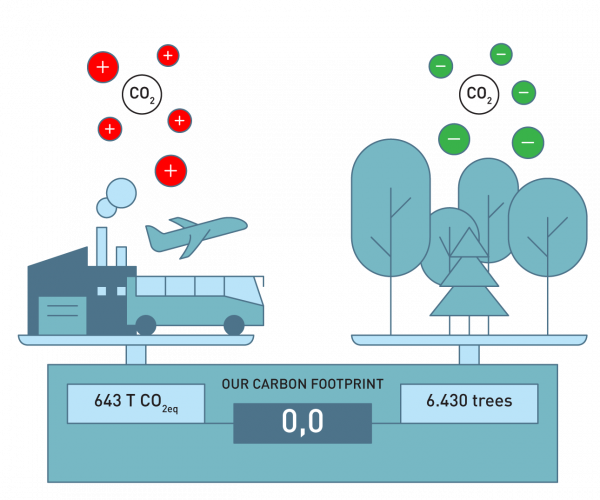Climate change actions
“Blue Lagoon always strives to be a model in eco-friendly experiences with well-being and sustainability as its guiding principles.”

Climate change and global warming are the greatest environmental threats to humanity today. The responsibility that comes with that challenge lies on all of our shoulders. It is only with the concerted effort of all nations, businesses and individuals that our ecosystem can be protected for future generations. “Blue Lagoon shoulders its responsibility in this field and always strives to be a model in eco-friendly experiences with well-being and sustainability as its guiding principles.”
Carbon neutral experience
Blue Lagoon offers its customers a carbon-balanced experience through its services and products. The company has been in collaboration with the Iceland Carbon Fund (ICF) regarding the carbon offsetting of all Blue Lagoon emissions since 2019. Through this collaboration, the company has contributed to the planting of 32,160 trees in three years. The carbon offsets for 2021 covered electricity, thermal energy, the fuel consumption of the Blue Lagoon’s vehicles, emissions from waste, staff’s air and bus travel, and guests’ bus travel with the Destination Blue Lagoon service.
In 2021, total greenhouse gas emissions from Blue Lagoon amounted to 643 tons of CO2eq, and the Iceland Carbon Fund and Icelandic Forestry Association will therefore plant 6,430 trees to offset those carbon emissions.
Our journey to carbon neutrality
Numerous improvement projects in recent years have been successful in reducing greenhouse gas emissions, but with the introduction of new operating units in 2018 and 2019, emissions increased. The biggest factor in the company’s emissions is fuel consumption due to bus travel by guests of the Blue Lagoon’s subsidiary, Destination Blue Lagoon, and staff vehicles. In 2021, this was equivalent to 77% of the company’s total emissions.
Greenhouse gas emissions dropped sharply in 2020 and 2021 as a result of COVID-19. Staff’s air, bus and car travel decreased and energy consumption diminished.
This contraction is not permanent, but an important lesson has been learned from the solutions created during the pandemic to be able to withstand a contraction of this kind as much as possible in the future.



